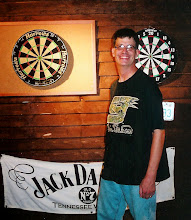Time once again for classes to resume, in the not-too-distant future, ergo, time to start getting caught up on the reading. The first issue we encounter here is whether education should be based on social experiences; in the book, the "pro" side of the argument is written by none other than John Dewey, who I realize by this was probably more visionary than we give him credit for, and spent more time moderating his opinions in response to the asinine overcompensation it elicited in education. Dewey, I think, is indeed right in professing that the one-way education that supposedly transmits from teacher to student, and has, at least in times previous to ours, existed in something of a vacuum, serves noone. It's already been firmly entrenched in my little mind that education that is not practical, or meaningful to the student, is almost not education at all; none the less, experience has always told us that in math, science, and many of the more "literal" disciplines, many of the truths are indeed truths, and not really subject to interpretation. You don't have to blow up the Hindenburg again to realize that filling up a blimp with hydrogen is a really bad idea. We know that, and nothing in creation is going to change it. It's the same with languages, albeit a bit more arbitrary in nature; "Gamsa Hamnida" will always mean "Thank you" in Korean, no matter how you slice it; you will be understood if you say this in the right context.
I do also believe that reading and writing for their own sakes tend to encourage creative thought generally, and we can usually take that as a good thing. I think in the end, I believe that things are very much the way Dewey says they are, especially when he says "rejection of the philosophy and practice of traditional education sets a new type of difficult educational problem for those who believe in the new type of education. We shall operate blindly and in confusion until we recognize this fact; until we thoroughly appreciate that departure from the old solves no problems." In short, there is a grey area in learning, and a "sweet spot" to be found where student interest, fact and educational philosophy on the part of the teacher converge. Sometimes we do get it right, sometimes we don't; but then again, Arnold Palmer and Michael Schumacher lost every so often, too. Hell, even Einstein was known to be wrong on the odd occasion. Imagine that; really, imagine that.
Subscribe to:
Post Comments (Atom)

No comments:
Post a Comment